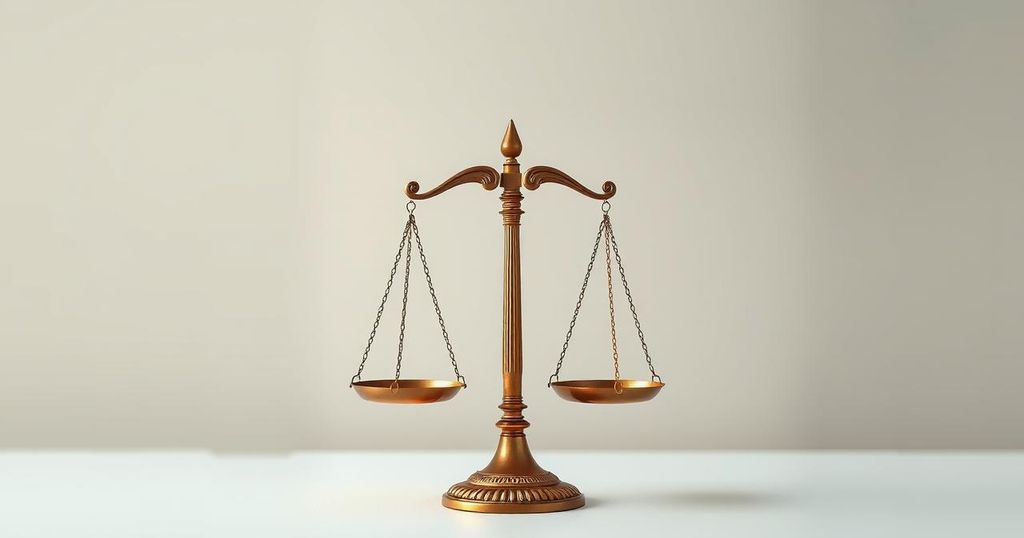US envoy Morgan Ortagus warned against Hezbollah’s participation in Lebanon’s new government, citing the group’s defeat by Israel. Hezbollah condemned her comments as interference, complicating the formation of a government under prime minister-designate Nawaf Salam amidst political turmoil. With calls for reform and the elimination of corruption, Lebanon faces ongoing challenges in addressing its complex political landscape dominated by sectarian divides.
During a recent visit to Beirut, US Deputy Special Envoy for the Middle East, Morgan Ortagus, emphasized that Hezbollah should not be part of Lebanon’s upcoming government, asserting the group’s defeat in its conflict with Israel. He categorized Hezbollah’s attempts to be included in the government as an unacceptable form of intimidation towards the Lebanese populace. Ortagus expressed gratitude to Israel for significantly weakening Hezbollah’s power during the previous conflict.
Hezbollah responded vehemently to Ortagus’s comments, labelling them as blatant interference in Lebanon’s affairs. The group’s parliamentary leader, Mohammed Raad, criticized the remarks as irresponsible and termed them a direct attack on Lebanon’s political integrity. Ortagus’s statements came after Lebanon’s prime minister-designate, Nawaf Salam, faced challenges in assembling a government amidst ongoing political tensions.
Ortagus’s visit marked the first official trip abroad since her appointment by President Trump, where she reiterated the importance of eliminating corruption and the disruptive influence of Hezbollah in Lebanese politics. Salam announced his intention to form a government devoid of party members implicated in corruption, aiming to restore functionality to Lebanon’s governance after a prolonged political stalemate.
The backdrop of these developments includes Lebanon’s multifaceted political landscape, where power is shared based on sectarian lines. While long-standing political figures and parties have faced widespread allegations of corruption, Salam is committed to reforming Lebanon’s political structure. He faces demands from Hezbollah and its ally, Amal, regarding Shiite ministerial appointments, adding complexity to the negotiation process.
Aoun has assured that consultations to form a government are nearing completion, emphasizing the readiness of the Lebanese army to take control of areas from which Israeli forces withdraw. US involvement has been crucial in facilitating ceasefire agreements between the two nations, with a renewed commitment to adhere to withdrawal timelines set in the past. The situation continues to evolve amid calls from both sides to respect the terms of engagement and withdraw within agreed deadlines.
The recent comments from US envoy Morgan Ortagus underscore the shifting dynamics in Lebanese politics and the ongoing challenges posed by Hezbollah’s presence. Over the years, Hezbollah has become a prominent player in Lebanon’s political landscape, influencing government decisions and military interventions. The US and international community have been particularly concerned about Hezbollah’s ties to Iran and its role in regional conflicts. The current political context in Lebanon is fraught with complexity due to sectarian divisions and a history of political corruption, which has greatly affected governmental functionality and public trust. The backdrop to these events includes a recent war that significantly weakened Hezbollah’s military capacity. Israel’s successful military actions during the conflict altered the strategic balance within Lebanon and the broader region. As Lebanon seeks to rebuild and reform, the presence of groups like Hezbollah presents both challenges and concerns for the future stability of the country.
In conclusion, the US has taken a firm stance against Hezbollah’s involvement in the Lebanese government, emphasizing the need for reform and an end to corruption in the country. Morgan Ortagus’s statements reflect a broader strategy to mitigate the influence of Iran-backed groups within Lebanon’s political structure. As Lebanon moves forward under a new prime minister, the focus will be on ensuring a government that is transparent and free from external pressures, particularly those stemming from Hezbollah’s political ambitions, while navigating the complexities of sectarian power-sharing that have long defined Lebanese governance.
Original Source: www.themountainpress.com






